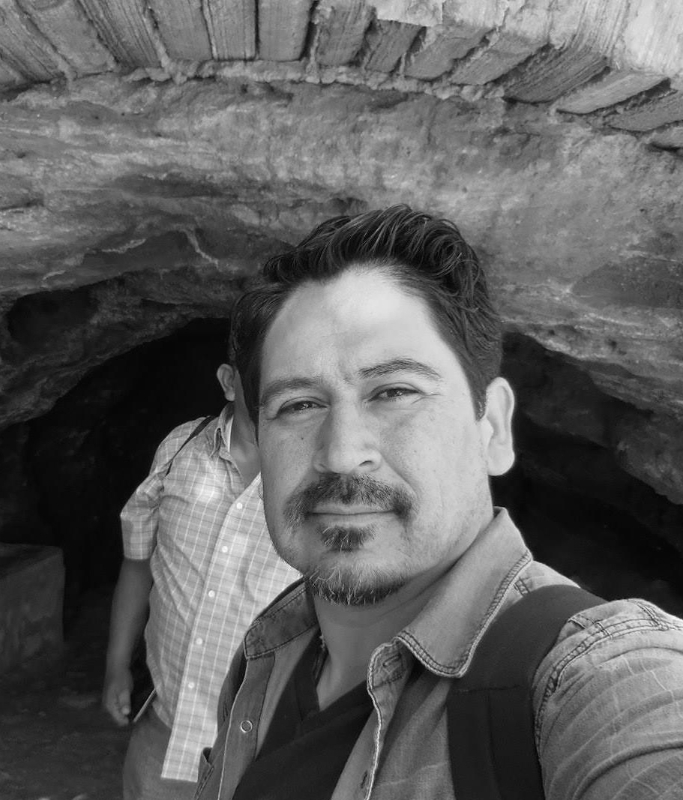On Jan. 28, 1948 more than 100 people witnessed a fiery aircraft spiral out of control and crash into a mountain range in the California Central Valley.
On board were 28 Mexican citizens who were being deported from Oakland, California to the Mexico border. All 28 Mexican citizens, along with the four crew members on board, were killed.
Media outlets at the time largely omitted the names of the 28 passengers.
Tim Hernandez, a Colorado-based artist, writer and poet who grew up in Central Valley farm towns, set out to find the names of those killed after reading about the tragedy in an old newspaper headline.
Hernandez will visit San Diego State on Oct. 12 to deliver a story-telling performance based on his research and his book, “All They Will Call You,” wherein he identified all 28 passengers and gave names to the nameless.
His work has been featured in The New York Times, The Los Angeles Times, The San Francisco Chronicle and on National Public Radio.
After the plane crash, all 28 Mexican citizens were buried in a mass grave in Fresno, California.
Folk artist Woody Guthrie immortalized the crash with the song “Plane Wreck at Los Gatos (Deportees).”
One lyric in the song states, “You won’t have your names when you ride the big airplane, all they will call you will be ‘deportees.”
Guthrie’s song was an attempt to restore the dignity of those passengers.
For Hernandez, the research process on identifying the victims was a personal journey influenced by his own experiences growing up.
He described a time back in his early 20s when baseball and painting came first – before he wanted to be a writer – when he watched those he loved be silenced by society.
His novel begins with the story of his grandfather, a migrant farm worker who was thrown out of a truck and broke his back.
He was given no compensation and was later fired without explanation.
“He didn’t know the power of his own voice,” Hernandez said. “Those injustices that had to do with silencing or erasing someone’s dignity are what really prompted me.”
Another lyric in the Guthrie song states, “My brothers and sisters come working the fruit trees, and they rode the truck till they took down and died.”
After a year and a half of searching death records and working with the cemetery director in Fresno, he decided to put out an ad in a bilingual newspaper looking for anyone who had a relative or knew about the accident.
Within a week, he was contacted by a family whose relative had died in the accident.
The family provided Hernandez with an old newspaper from the Mexican Consulate that had a complete and correct list of the victim’s names.
What followed were years of tracking down the family members of victims and conducting interviews.
This also included interviews with the families of the four crew members who died.
In one case, Hernandez interviewed a woman in her mid-80s whose fiancé was killed in the crash.
“You could see it in her eyes, that she was a 20-year-old again,” Hernandez said. “The love was still palpable.”
Another lyric in the Guthrie song states, “Goodbye to my Juan, goodbye, Rosalita. Adios mis amigos, Jesus y Maria.”
Hernandez said throughout his search for the 28 names, there was a recurring theme of music.
While interviewing a woman whose father was on board the plane that January morning, she told Hernandez about a song her father used to sing to her as a child.
Another woman Hernandez interviewed described the last conversation with her husband who said he was coming back to Mexico and would bring her a mariachi.
“Everybody attaches their fondest memories or most important parts of their life to music,” Hernandez said.
The song states, “Who are all these friends, all scattered like dry leaves? The radio says, ‘They are just deportees.’”
Hernandez largely focuses on the word “deportee” in his work.
He describes it as an abstraction, a word used to generalize a group of people, telling us nothing about who they were as human beings.
“It’s happened all across time and it continues to happen,” Hernandez said. “I felt like my job was to put that humanity back in to who we’re talking about.”
Hernandez’s Oct. 12 performance aims to honor those who died and works to highlight the idea that people have more in common than they do differences.
“Despite our different ethnic makeups, political beliefs, social statuses, we are all hurling in one ship towards a common fate,” Hernandez said.
The event will be held from 4:30 – 6:30 p.m. in Smith Recital Hall and features special guest and folk musician Joel Rafael, as well as a Q&A with the author.
The performance is organized by SDSU Downtown Gallery Director, Chantel Paul, in conjunction with the We Are Here/Estamos Aquí exhibit on display at the SDSU Downtown Gallery.
These are the names of 28 passengers killed on Jan. 28, 1948:
Miguel Negrete Álvarez, Tomás Aviña de Gracia, Francisco Llamas Durán, Santiago García Elizondo, Rosalio Padilla Estrada, Tomás Padilla Márquez, Bernabé López Garcia, Salvador Sandoval Hernández, Severo Medina Lára, Elías Trujillo Macias, José Rodriguez Macias, Luis López Medina, Manuel Calderón Merino, Luis Cuevas Miranda, Martin Razo Navarro, Ignacio Pérez Navarro, Román Ochoa Ochoa, Ramón Paredes Gonzalez, Guadalupe Ramírez Lára, Apolonio Ramírez Placencia, Alberto Carlos Raygoza, Guadalupe Hernández Rodríguez, Maria Santana Rodríguez, Juan Valenzuela Ruiz, Wenceslao Flores Ruiz, José Valdívia Sánchez, Jesús Meza Santos, Baldomero Marcas Torres.
Editor’s Note: This article was updated on Oct.11 to reflect corrections with the attribution of Woody Guthrie’s song lyrics and text from Tim Hernandez’s book.







